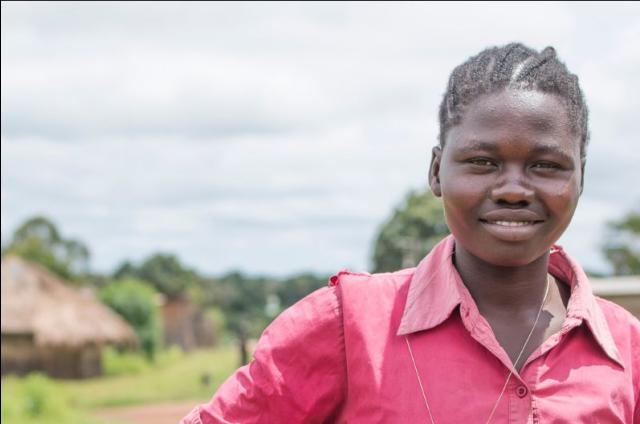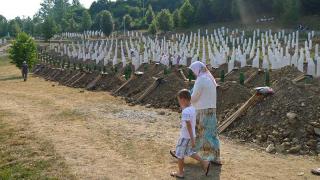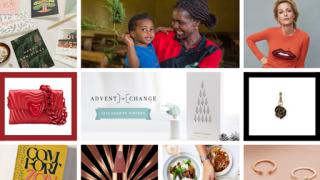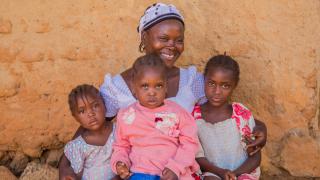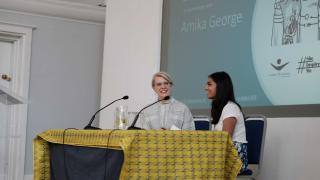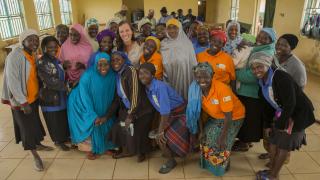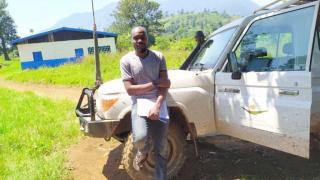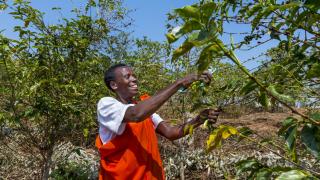From Conflict to Collaboration: A Couple's Transformation
From Conflict to Collaboration: A Couple's Transformation
The journey of two graduates of our programme, Mawa and Jackline, finding peace through our programme
Mawa and Jackline have been married for six years. They live in Wuluturu, Yei River County, South Sudan, with their two children. Their marriage was on the brink of collapse when they were enrolled in our Couples Connect Pilot Programme.
Today, Mawa shares that they now live together in harmony. Here is his story.
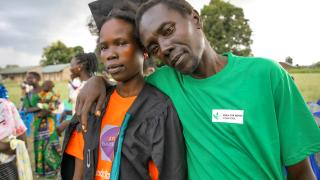
In my culture, being a man means being the head of the family. This title comes with responsibilities but also a lot of privileges.
As the head of my household, I was raised to be the sole provider and decision-maker. Everything I said or did was final. My wife wasn’t supposed to seek financial independence or earn a living; she was meant to stay home and take care of the family.
This belief shaped my expectations when I got married.
To my surprise and frustration, my wife was not the obedient woman I expected. She had a mind of her own and wanted to contribute financially. She would buy things for our home without my input, prepare meals with money I hadn’t given her, and even engage in small businesses and casual labour to make her own money. This independence didn't sit well with me. I was suspicious - where did she get the money? Why was she always away from home? Was she trying to compete with me or, worse, undermine my authority?
My suspicions turned to anger. I verbally insulted her and sometimes became violent. I threw away food she prepared with her own money and restricted her movements.
Our home became a battleground, and we became enemies living under the same roof.
One morning, my wife suggested we join the Couples Connect Programme with Women for Women International.
Initially, I was hesitant. But she mentioned that we might receive financial support if we attended together. Reluctantly, I agreed, motivated only by the prospect of money.
As we participated in the programme, something remarkable happened. We learned about teamwork, sharing responsibilities, effective communication, problem-solving and financial management.
Slowly, I began to understand and appreciate my wife’s efforts.
We started talking again, discussing business, farming and our children. I began supporting her business and we started working together. By the end of the programme, we received some capital, which we invested in her business.
Today, our lives are transformed. I can relax a little, knowing that I don’t have to shoulder every burden alone.
We are a team.
Recently, I developed an illness that affects my ability to walk or stand, making it difficult for me to work. My wife has become the primary breadwinner, contributing up to 70% of our family’s income. I now support her as best I can.
I am grateful to Women for Women International for this life-changing programme and for giving me another chance at love.
I am also grateful to my wife for being strong and persistent.
Without her, I don’t know how I would manage in my current condition.
To all women, I encourage you to support your husbands and not give up on your families. And to the men, I hope you learn from my experience: support your wives, and if you can’t support them, at least don’t stand in their way.
keep reading
We are committed to helping those women who have survived sexual violence in war. This week we have an amazing opportunity. A fantastic group of supporters have agreed to match, pound for pound, every donation made during the week of 25th November – 3rd December 2019.
The Ultimate Feminist Gift Guide
subtitle:
This year, we have rounded up the best gifts for the global sisterhood in our Feminist Gift Guide! Whether you’re buying for a special someone or looking to treat yourself, these gifts not only have the power to delight but will also make a real difference for women survivors of war.
Today, on International Day of the Girl Child, and every day, Women for Women International strives to lift women to achieve their greatest potential both financially and socially so that they can lift their daughters in turn.
Advent of Change Charity Advent Calendar
subtitle:
We are delighted to announce that Women for Women International is part of a unique advent calendar for Christmas 2019, alongside 23 other charities, which will appear in John Lewis & Partners stores across the country.
10 podcasts you should listen to
subtitle:
The team at Women for Women International has compiled a short list of some of the podcast recommendations from our staff and some podcasts that we’ve been featured in.
Last week, Heads of State and Government descended on New York to meet for the Sustainable Development Goals (SDGs) Summit, as part of the 74th session of the United Nations General Assembly. Along with members of our Global Advocacy Team, I travelled to New York to represent Women for Women International at the Summit.
The Global Goals are so incredibly important in helping us to clearly identify the global challenges we face. We can all take one goal that resonates with us, and strive to tackle it in our own way, in our homes, schools, workplaces or communities.
Instead of bringing the peace these talks promised, President Trump’s sudden public condemnation and halt is leading to a surge in violence, threatening not only negotiations but the safety of the country’s women.
What does peace mean to you?
subtitle:
For women survivors of war, peace is not just an aspirational ideal, but a series of urgent, practical goals that they are working hard to make a reality.
Meet our Team: Interview with Aganze
subtitle:
As part of our 'Meet our Team' series, this week we spoke to Aganze Eliud Murhabazi, the IT Officer at Women for Women International - DRC who also supports our global Communications team.
Cindy, Julie and Jen are fans of our Ambassador Gillian Anderson and supporters of our work with women survivors of war.
For World Entrepreneurs’ Day, we’re celebrating some recent success stories from businesswomen in Rwanda, DRC and Nigeria.

